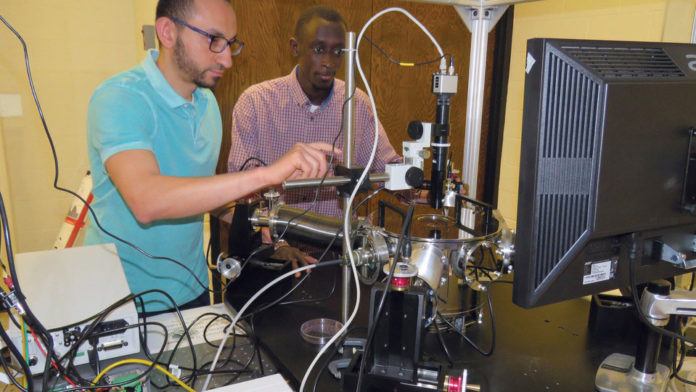Every computing device produces heat in proportion to the electricity it consumes. Faster, more powerful computers produce more heat than smaller, portable models. Keeping your computer running at safe temperatures is important, especially as the temperature rises outside. But, this heat can be the alternative source of energy. To do so, scientists have developed a device that converts computer heat into an alternative source of energy.
Scientists from the University of Nebraska-Lincoln in the US have developed a thermal diode that allows computing at ultra-high temperatures. The device has solved one of the biggest problems with computers.
Sidy Ndao, an assistant professor of mechanical and materials engineering, said, “The development of a nano- thermal-mechanical device, or thermal diode, came after flipping around the question of how to better cool computers.”
“If you think about it, whatever you do with electricity you should (also) be able to do with heat because they are similar in many ways. In principle, they are both energy carriers. If you could control the heat, you could use it to do computing and avoid the problem of overheating.”
“The device working in temperatures that approached 630 degrees Fahrenheit. We expect the device could potentially work in heat as extreme as 1,300 degrees Fahrenheit.”
Basically, scientists were creating a thermal computer that has application in space exploration, for exploring the core of the earth, for oil drilling, etc. It could allow processing data and calculations in real-time that was previously impossible. By using an energy source, the thermal diode could also limit the amount of waste energy.
According to the estimate, in the US, almost 60% energy produced for consumption, wasted in heat. If harnessing this heat and using it for energy, it could possibly reduce waste and the cost of energy.
Ndao said, “Though the researchers have filed for a patent, there is still work to be done to improve the diode and its performance. We want to create the world’s first thermal computer.”
“Hopefully one day, it will be used to unlock the mysteries of outer space, explore and harvest our own planets deep-beneath-the-surface geology, and harness waste heat for more efficient energy utilization,” he said.
